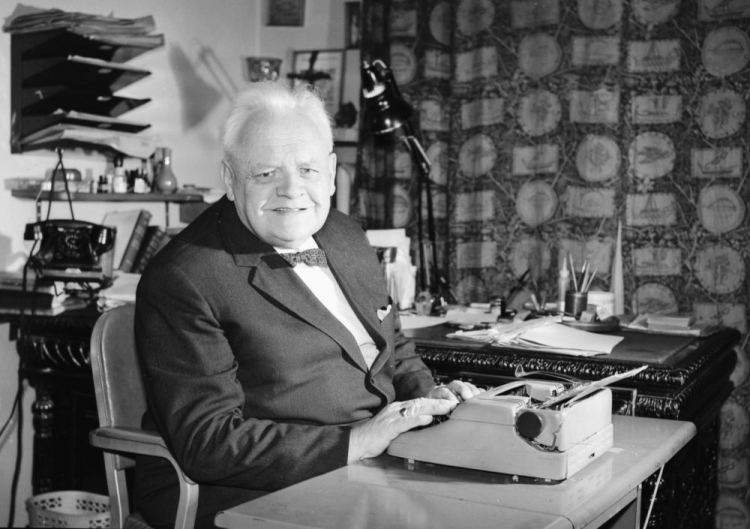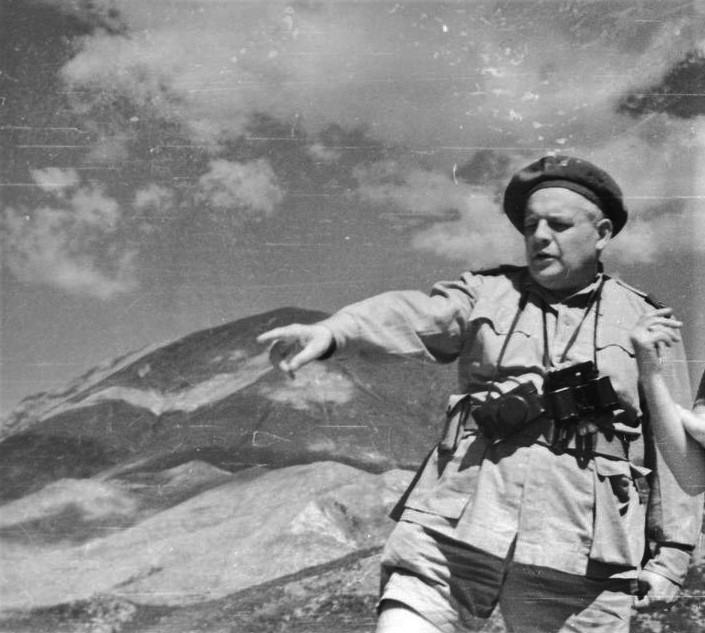A Childhood Steeped in Loss and Legacy
Melchior Wańkowicz was born on January 10, 1892, in Kałużyce, a family estate near Minsk, then part of the Russian Empire. His very name bore the weight of history, a homage to his father, a freedom fighter in the January Uprising of 1863. Tragedy struck early: his father died the year of his birth, and his mother followed just three years later. Orphaned at such a tender age, Wańkowicz was uprooted from his birthplace and sent to live with his grandmother in the Lithuanian countryside.
This period, though marked by profound loss, became the wellspring of his creative imagination. Years later, he immortalized his idyllic childhood in ‘Szczenięce Lata’ (‘Puppy Years’), a poignant memoir that painted a nostalgic picture of the waning Polish gentry and the rhythms of a bygone rural world. The book remains one of the most tender and evocative portrayals of Polish provincial life, a testament to Wańkowicz’s deep emotional connection to his roots.
The Revolutionary Awakens: A Youth in Defiance
Wańkowicz’s formative years coincided with the repressive policies of the Russian Empire, which sought to erase Polish culture and language. Attending a Russian-controlled school in Warsaw, he experienced firsthand the indignities of enforced assimilation. His refusal to conform became evident early—he was punished multiple times for speaking Polish on school grounds. This spirit of defiance found an outlet in clandestine student organizations, where he joined the fight for Polish independence.
By his teenage years, Wańkowicz was fully immersed in underground activism. He became a member of the Organization of Youth of Secondary Schools ‘Future’ (Pet) and later assumed the role of its secretary-general. His participation in the 1905 school strike, a pivotal protest demanding the right to Polish education, was a formative experience that underscored the power of collective resistance. This burgeoning political consciousness would later inform his lifelong commitment to truth and justice, both in his writing and in his personal life.
The Patriot and the Pen: Forged in the Fires of Independence
Before Wańkowicz became synonymous with Polish reportage, he was a soldier and patriot on the frontlines of his nation’s struggle for independence. During the First World War, he served as a representative of the Central Committee of Polish Citizens, an organization committed to aiding displaced Poles in Russia. This role brought him face-to-face with the chaos and suffering of war, as he organized relief efforts and reunited families torn apart by conflict.
In 1917, Wańkowicz joined the First Polish Corps under General Józef Dowbor-Muśnicki. However, his commitment to Polish sovereignty was tested in May 1918, when the Corps leadership struck an agreement with Germany to cease hostilities. Viewing the deal as a betrayal, Wańkowicz participated in a mutiny led by younger officers opposing the decision. His arrest and subsequent trial for treason marked him not just as a soldier but as a man unyielding in his principles. His eventual acquittal by a military court cemented his status as a committed patriot.
Between Wars: The Rise of a Literary Titan
With Poland’s independence restored, Wańkowicz transitioned from activism to literature, channeling his energies into intellectual and creative pursuits. After completing studies in law and political science at Jagiellonian University, he returned to Warsaw and briefly worked in public service. Yet, bureaucracy could not contain his restless spirit.
In 1924, Wańkowicz co-founded Towarzystwo Wydawnicze Rój (Rój Publishing Society), a revolutionary publishing house that brought Polish literature into the modern age. Under his leadership, Rój elevated authors like Bruno Schulz and Witold Gombrowicz, while Wańkowicz himself gained renown as a writer and journalist. His book ‘Na Tropach Smętka’ (‘On the Trail of Smętek’) combined sharp reportage with lyrical prose, offering an incisive look at cultural tensions in Polish-German borderlands.
Perhaps most famously, he demonstrated that even advertising could be an art form. His slogan ‘Cukier krzepi’ (‘Sugar strengthens’) became a national catchphrase, cementing his reputation as a linguistic innovator.
War and Exile: Chronicler of Heroism
The outbreak of Second World War forced Wańkowicz into exile, but it also provided him with new material to document. As the world descended into chaos, he served as a war correspondent for the Polish II Corps, covering the Battle of Monte Cassino—a grueling campaign that became a symbol of Polish resilience. Determined to witness the events firsthand, Wańkowicz spent two harrowing weeks on the front lines. His account, ‘Bitwa o Monte Cassino’ (Battle of Monte Cassino), remains a towering achievement, blending meticulous historical detail with profound emotional depth.
Exile, however, was not merely a physical displacement for Wańkowicz; it was an emotional and intellectual exile as well. The destruction of Warsaw, the loss of his Żoliborz home, and the death of his daughter Krysia during the Warsaw Uprising left indelible scars. For years, he lived as a literary nomad, moving between London, Rome, and the United States, always searching for a sense of belonging.
The Communist Reckoning: Defiance at Any Cost
Wańkowicz’s return to Poland in 1958 marked the beginning of his most politically fraught years. Initially welcomed as a national treasure, he soon became a thorn in the side of the communist regime. In 1964, his name appeared among the signatories of the ‘Letter of 34’, a bold protest against state censorship. The regime retaliated with characteristic ruthlessness, accusing him of anti-state activities and collaboration with Radio Free Europe.
The ensuing trial was a showpiece of political repression. Wańkowicz, then in his seventies, faced accusations fabricated by a system intent on silencing dissent. The court sentenced him to three years in prison, though public outcry forced the authorities to halt the execution of the sentence. Wańkowicz, unwavering in his principles, refused to beg for clemency, embodying the very courage he had celebrated in his writings.
Legacy of Resistance
Melchior Wańkowicz passed away in Warsaw on September 10, 1974, but his defiance outlived him. True to his wishes, his funeral was a modest affair, free from the state propaganda that sought to claim his legacy. His final resting place at Powązki Cemetery serves as a quiet monument to a man who refused to be silenced.
Wańkowicz’s life and work remain a beacon for those who value freedom of expression. His stories remind us of the resilience of the human spirit, the power of words to challenge oppression, and the enduring importance of truth. As censorship and authoritarianism resurface in various forms, Wańkowicz’s legacy calls us to resist, write, and never surrender.
References:
Melchior Wańkowicz (1892-1974) (Dzieje.pl)
Proces Melchiora Wańkowicza oczami Jana Olszewskiego (Dzieje.pl)
Melchior Wańkowicz. Klasyk polskiego reportażu (Polskie Radio)
Melchior Wańkowicz - postać nieco zakazana w PRL (Jedynka)

